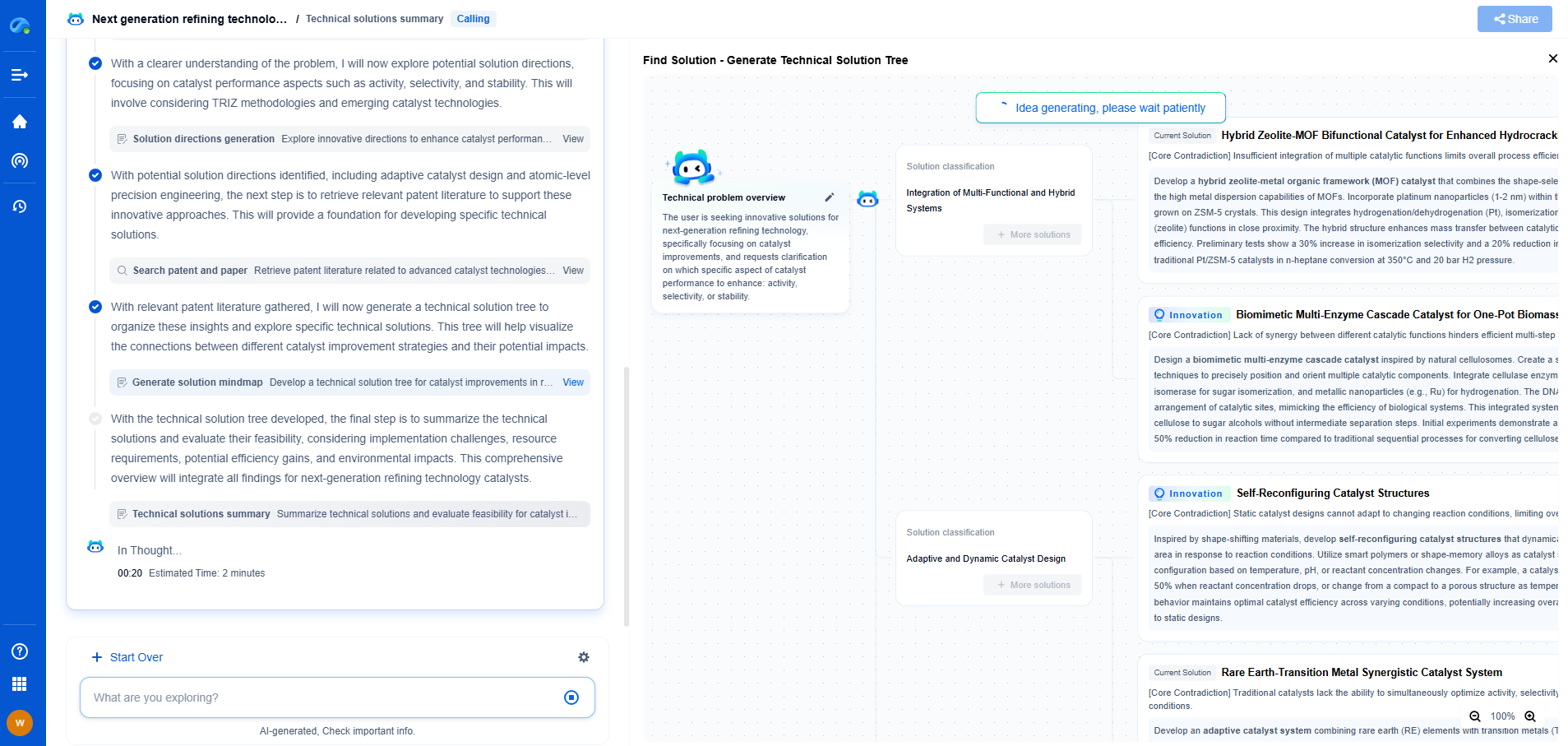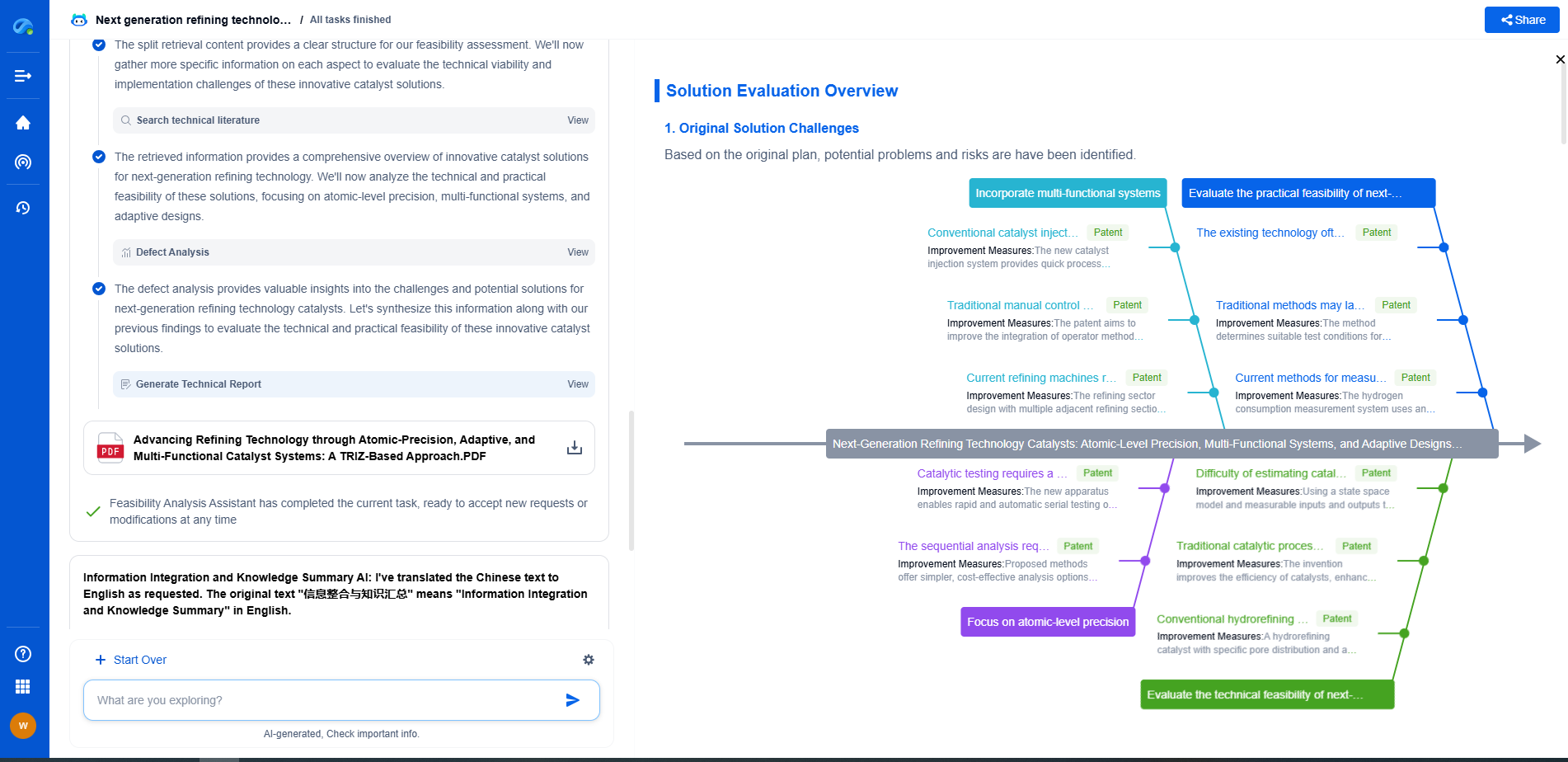What is a sintered metal filter and how does it perform under high pressure?
JUL 25, 2025 |
Sintered metal filters are an integral component in various industrial applications, celebrated for their durability and efficiency in filtering out contaminants from liquids and gases. But what exactly are they, and how do they operate, especially under high-pressure conditions? This article delves into the world of sintered metal filters, exploring their composition, functionality, and performance in challenging environments.
Composition and Manufacturing Process
Sintered metal filters are manufactured through a process known as sintering, where powdered metal is compressed and heated below its melting point until the particles adhere to each other. This method creates a porous structure that is both robust and efficient at filtering. Common materials used include stainless steel, bronze, and nickel, each chosen based on the specific requirements of the application, such as corrosion resistance or thermal stability.
The porosity of these filters is customizable, allowing for precise control over the filtration level, from coarse to sub-micron. This adaptability makes sintered metal filters suitable for diverse applications, from pharmaceutical production to petrochemical processing.
Advantages of Sintered Metal Filters
One of the main advantages of sintered metal filters is their structural integrity. Unlike traditional filters that might collapse or degrade under stress, these filters maintain their shape and functionality even when subjected to high pressure. They offer long-term durability, which translates to reduced maintenance costs and downtime in industrial settings.
Furthermore, sintered metal filters are known for their excellent thermal resistance. They can withstand extreme temperatures without losing their filtering capabilities, making them ideal for use in harsh environments. Their resistance to chemical corrosion also ensures they remain effective even when filtering aggressive substances.
Performance Under High Pressure
The true test of any filter is how it performs under high-pressure conditions. Sintered metal filters excel in this regard, thanks to their unique structure. Their rigidity allows them to withstand significant pressure differentials without deforming or rupturing. This resilience is crucial in industries where high-pressure operations are common, such as oil and gas exploration or chemical processing.
Under high pressure, sintered metal filters continue to provide consistent filtration, effectively removing particulates and contaminants from fluids. Their ability to operate reliably under such conditions ensures the safety and efficiency of high-pressure systems, preventing contamination and costly breakdowns.
Applications in High-Pressure Environments
Due to their robustness and reliability, sintered metal filters are widely used in high-pressure applications. In the oil and gas industry, for example, they are essential in the filtration of drilling fluids and gases, ensuring that equipment functions smoothly and safely. In aerospace, these filters help maintain the purity of hydraulic fluids, which is critical for the operation of aircraft systems.
Moreover, sintered metal filters are employed in the chemical and pharmaceutical industries, where they play a vital role in the production of clean, contaminant-free products. Their ability to operate under extreme conditions without compromising on performance makes them indispensable in these fields.
Conclusion
Sintered metal filters are a testament to engineering ingenuity, offering unparalleled performance in filtration across a range of industries. Their robust construction and ability to function under high pressure make them a reliable choice for businesses looking to maintain efficiency and safety in demanding environments. As industries continue to evolve and face new challenges, the versatility and durability of sintered metal filters will undoubtedly keep them at the forefront of filtration technology.
From next-generation membrane materials to high-efficiency separation processes for pharmaceuticals, water treatment, food processing, or energy systems, the filtration & separation industry is rapidly evolving with a surge in material innovation, microstructure design, and process optimization.
Patsnap Eureka, our intelligent AI assistant built for R&D professionals in high-tech sectors, empowers you with real-time expert-level analysis, technology roadmap exploration, and strategic mapping of core patents—all within a seamless, user-friendly interface.
Whether you're designing the next high-throughput filter, optimizing nanostructured surfaces, or exploring new separation media for emerging industries—Patsnap Eureka gives you AI-driven insights in seconds, helping you move from ideation to innovation with confidence.
🚀 Start your free trial today and experience how Eureka transforms filtration innovation—from reactive to predictive.
- R&D
- Intellectual Property
- Life Sciences
- Materials
- Tech Scout
- Unparalleled Data Quality
- Higher Quality Content
- 60% Fewer Hallucinations
Browse by: Latest US Patents, China's latest patents, Technical Efficacy Thesaurus, Application Domain, Technology Topic, Popular Technical Reports.
© 2025 PatSnap. All rights reserved.Legal|Privacy policy|Modern Slavery Act Transparency Statement|Sitemap|About US| Contact US: help@patsnap.com

